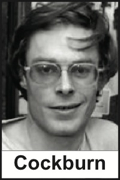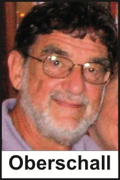Rascals case in brief
In the beginning, in 1989, more than 90 children at the Little Rascals Day Care Center in Edenton, North Carolina, accused a total of 20 adults with 429 instances of sexual abuse over a three-year period. It may have all begun with one parent’s complaint about punishment given her child.
Among the alleged perpetrators: the sheriff and mayor. But prosecutors would charge only Robin Byrum, Darlene Harris, Elizabeth “Betsy” Kelly, Robert “Bob” Kelly, Willard Scott Privott, Shelley Stone and Dawn Wilson – the Edenton 7.
Along with sodomy and beatings, allegations included a baby killed with a handgun, a child being hung upside down from a tree and being set on fire and countless other fantastic incidents involving spaceships, hot air balloons, pirate ships and trained sharks.
By the time prosecutors dropped the last charges in 1997, Little Rascals had become North Carolina’s longest and most costly criminal trial. Prosecutors kept defendants jailed in hopes at least one would turn against their supposed co-conspirators. Remarkably, none did. Another shameful record: Five defendants had to wait longer to face their accusers in court than anyone else in North Carolina history.
Between 1991 and 1997, Ofra Bikel produced three extraordinary episodes on the Little Rascals case for the PBS series “Frontline.” Although “Innocence Lost” did not deter prosecutors, it exposed their tactics and fostered nationwide skepticism and dismay.
With each passing year, the absurdity of the Little Rascals charges has become more obvious. But no admission of error has ever come from prosecutors, police, interviewers or parents. This site is devoted to the issues raised by this case.
On Facebook
Click for earlier Facebook posts archived on this site
Click to go to
Today’s random selection from the Little Rascals Day Care archives….
Click for earlier Facebook posts archived on this site
Click to go to
Today’s random selection from the Little Rascals Day Care archives….
R.I.P., Alexander Cockburn, ritual-abuse skeptic
 July 30, 2012
July 30, 2012
Death noted: Radical-left polemicist Alexander Cockburn, who as early as 1990 was raging against claims of satanic ritual abuse.
Cockburn gave particular attention to feminism’s role in the mania:
“In the coalition powering the satanic abuse persecutions,” he recalled in a 1999 column in The Nation, “feminists constituted a powerful component, most conspicuously in the form of Gloria Steinem and Ms. magazine.
“How did feminism, a movement that grew out of the radical passions of the 1960s, navigate itself into this demonic alliance? Charges of perverse abuse of children seemed an inviting line of attack in the larger onslaught on patriarchy, sexual violence and harassment. Social workers and therapists – many of them feminists – became the investigators and effective prosecutors.”
Cockburn oversimplified, as was his way, but it’s no stretch to see how feminism fed into not only ritual abuse, but also the sister hoaxes of recovered memory syndrome and multiple personality disorder.
View from Edenton: Oh, the damage done….
March 1, 2021
I was surprised recently to notice a Facebook message from an elementary school teacher in Greenville, N.C.
Buddy Hyatt had grown up in Edenton and wanted to talk about the Little Rascals Day Care case. “It ripped apart many families and almost destroyed the town,” he wrote. “In 1989, when the accusations started, I was in first grade. But earlier I had attended Little Rascals. My parents had me and my younger brother checked over by an unbiased child psychiatrist in Greenville. After several sessions he reported that we had no indications of physical or sexual abuse.”

Buddy Hyatt
Buddy had multiple other windows on the case. ‘”My grandfather, Pete Manning, was editor and publisher of the Chowan Herald, and my dad was associate pastor and minister of music at Edenton Baptist.
“The Twiddys, the Kellys and Nancy Smith were all members of our church, as was [initial accuser] Jane Mabry Williams. This split the church right down the middle. Because the pastor and staff wouldn’t take sides, quite a few people got mad as fire. A good handful left. Some (especially those against the Kellys) spoke harshly and rudely to both my dad and grandmother.
“I feel most sorry for Bob and Betsy’s daughter, Laura. We had been in the same kindergarten class when the accusations started. My mom carpooled us. We did everything we could to be kind and remain friends with Laura and her family. I cannot imagine the pain and heartbreak they experienced.
“Lew, I know that’s a lot of information. Forgive me. I am happy to talk any time about the case or Little Rascals. The accusations and trial were a travesty and left so many people hurt and broken. No matter how much exoneration is given, the damage is already done.”
A few days passed before I heard from Buddy again: “Forgive me for being slow to respond. I happened to catch Covid, so the past week has been quite a struggle. Once I get through this (hopefully I’m on the tail end of it), we can plan to talk….”
Two weeks later Buddy Hyatt was dead. We never talked. I’m grateful for his big-hearted recollections and for his resolve to say more. RIP, Buddy.
![]()
‘The right man’ was the wrong man? No way!
 March 19, 2012
March 19, 2012
In “The Folly of Fools: The Logic of Deceit and Self-Deception in Human Life” (2011), Robert Trivers briefly addresses the causes and costs of the ritual abuse mania.
I asked Trivers, professor of anthropology and biological sciences at Rutgers University, about the role played by prosecutors in such cases:
“Prosecutors are notoriously vulnerable to tunnel vision – i.e., once a suspect has been identified, others disappear from sight; they also need to justify themselves in retrospect.
“I was told by (Innocence Project cofounder Peter J.) Neufeld that even after incontrovertible DNA evidence, 75 percent of the original detectives who came up with (and helped convict) the wrong person still say they believe they got ‘the right man.’ ”
An expertise ‘contrary to science and common sense’
 March 7, 2013
March 7, 2013
Anthony Oberschall’s “Why False Beliefs Prevail: the Little Rascals Child Sex Abuse Prosecutions” appeared in “Essays in Honor of Raymond Boudon” (2000).
Most saliently, the UNC sociologist argues that “hysteria” and “moral panic” are inadequate to describe what happened in Edenton. Rather, he sees the town – and the Little Rascals defendants – as victims of the purveyors of “pseudoscience”:
“When child sexual abuse became a national issue, the medical profession, academic psychology and social science were just starting to study it scientifically…. The legal profession lacked experience with trial testimony of pre-schoolers and admission of hearsay testimony by parents and therapists….Meanwhile thousands of child sex abuse allegations had to be dealt with.
“In the absence of proven knowledge, a child sex abuse industry of self-appointed ‘experts’ based on pseudo-science filled the demand for training and informing child protection service workers, social workers, police investigators, prosecutors, therapists and others…. They were convinced they were saving America’s children, even though their methods and knowledge were contrary to science and to common sense. In Edenton, the prosecution and the investigators relentlessly labored to supplant common sense with false beliefs based on pseudo-science, (and) they succeeded….”
Working with UNC journalism student David Loomis on his master’s thesis detailing news coverage of the case, Oberschall “tried to survey Edenton households by mail (picked names at random from a phone book), but got less than a 10 percent return rate. It was obvious people there didn’t want anything to do with an outsider, a scholar.”
Rebuffed, Oberschall drove to Edenton himself and conducted perhaps a dozen interviews, which he made use of both in “Why False Beliefs Prevail” and in this more detailed draft working paper from 2010.











0 CommentsComment on Facebook